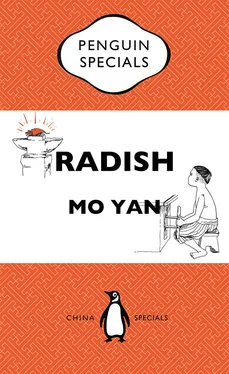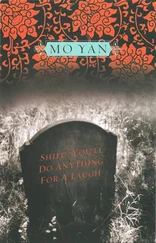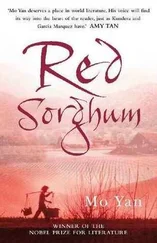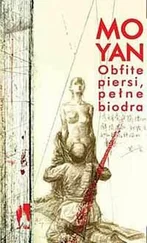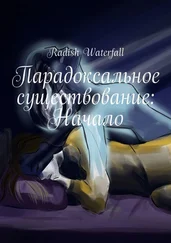‘Him?’ Director Liu wrapped his hand around the boy’s neck and wobbled his head back and forth. Hei-hai’s heels nearly left the ground. ‘Why send me this skinny little monkey?’ he snarled. ‘Can he even lift a hammer?’
‘All right now, Director Liu Taiyang,’ the mason said as he pried the man’s hand from Hei-hai’s neck. ‘The glory of socialism is that everyone eats. Hei-hai comes from three generations of poor peasants. If socialism won’t take care of him, who will? Besides, his mother’s gone, and he lives with a stepmother. His daddy went off to the north-east like a man possessed and hasn’t been home for three years. He might be bear food by now or lying in the bellies of wolves. Where’s your class sentiment, Director Liu Taiyang?’ This he said partly in jest.
Hei-hai was lightheaded from the shaking. He’d been close enough to the director to smell the alcohol on his breath, and it made him sick. It was what his stepmother smelled like much of the time. After his father left, she often sent him to the canteen to barter dried yams for alcohol, and she didn’t stop drinking till she was drunk. That was when the beating and the pinching and the biting started.
‘A skinny little monkey!’ Director Liu spat out, then turned and continued lecturing the others.
Hammer in hand, Hei-hai scampered onto the floodgate, about a hundred metres long and a dozen or more metres tall, and fronted on the north by a rectangular trough, the same length as the floodgate itself. It contained the remnants of the summer floodwaters. The boy stood atop the floodgate, gripping the stone railing as he gazed down at the water, where scrawny black fish swam clumsily between the rocks. Both ends of the gate butted up against the towering levee, which was part of the road to the county town. There were stone railings, half a metre high, at each end of the five-metre-wide gate. A few years earlier, a passing horse cart had knocked a number of cyclists over the side, leading to broken legs and hips and even a fatality. He’d been younger then, of course, and had had a lot more meat on his bones. His father hadn’t left for the north-east and his stepmother hadn’t started drinking. He ran over to see what was going on, but arrived too late, after the cyclists had been taken away, and all that remained in the trough was muddy water stained red. His nose was keen enough to detect the stink of blood floating up from the water.
Gripping the cold white stone railing with one hand, he rapped it with his hammer, causing both railing and hammer to ring out. And as he listened intently to the sound, scenes from the past flitted in and out of his eyes before disappearing. A bright sun shone down on the jute field beyond the levee, and he watched a fine mist skitter among the plants. The fields were too densely planted: low to the ground there were gaps between the stalks, but the upper branches and leafy tops came together, damp and glistening. He let his eyes drift westward, past the jute field to a patch of sweet potatoes, where the fleshy purple leaves gleamed. Hei-hai knew they were a new variety, short vines heavily laden with potatoes bigger and sweeter than most, with white skins and red pulp; they burst open when cooked. A vegetable plot bordered the sweet potato patch to the north. Now that all private land had reverted to the commune, this is where production brigade members planted vegetables. Hei-hai knew that both the vegetable plot and the sweet potato patch belonged to a village five li away. It was one of the richer villages. The vegetable plot was planted with cabbages and radishes, whose long, lush tassels were such a deep green they were nearly black. A lonely two-room shed in the centre of the plot was home to a lonely old man. The boy knew all this. Jute plants as far as the eye could see spread out north of the field. The same was true to the west. With jute on three sides and the levee on the fourth, the sweet-potato plot and vegetable field looked like a big square well. As the boy’s thoughts wandered, the purple and green leaves turned into autumn well water, and then the jute became water, while sparrows skimming the tips of the jute plants were transformed into green kingfishers snapping up tiny shrimp from the water’s surface.
Deputy Director Liu was still lecturing. Here is what he said: If agriculture is to follow the Dazhai Commune model, irrigation will be its lifeblood. That’s one of the points of the Eight Point Charter for Agriculture. Agriculture without irrigation is like a child with no mother. Or a child with a mother with no breasts. Or it’s a child with a mother with breasts but no milk. Without milk the child will die, or if it lives, it’ll turn out like this little monkey (Director Liu pointed to Hei-hai, up on the floodgate. The boy had his back to the people and they could see two sun-illuminated scars streaking down his back like jagged lightning bolts). And besides, the gate is so narrow it claims lives every year. The commune’s revolutionary committee takes this very seriously, and after studying the problem from all angles, we’ve decided to widen the gate. To get the job done, we’ve mobilised labourers from all brigades, more than two hundred of you. This is the first stage: girls and married women, young and old, plus the little monkey (he pointed a second time to Hei-hai up on the gate whose scars now shone like mirrors) will break up all the rocks within five hundred square metres to the size of restorative pills or egg yolks. Masons will then shape the pieces of stone appropriately. These are our two blacksmiths (he pointed to a pair of deeply-tanned men, one tall, the other short, one old, the other young), who will repair chisels the masons have dulled. Those of you who live close by will return to your villages for meals, the others will eat in the village up ahead, where we’ve set up a field kitchen. The same for sleeping: those who live farther away will spend the nights under the bridge openings (he pointed to the arched openings below the floodgate). The women will sleep from east to west, the men from west to east. Straw will be spread out on the ground for sleeping, fluffy as spring mattresses, too fucking comfy for the likes of you.
‘Are you going to sleep under one, Director Liu?’
‘I’m in charge, I’ve got a bicycle, and it’s none of your business where I plan to sleep, so don’t get your guts in a stew. Do soldiers ride horses just because their officer does? Now get your asses to work. You’ll get plenty of work points, and I’ll throw in a measure of water conservation grain and twenty water conservation cents. Anyone who doesn’t want to work can fuck off. Even the little monkey will get money and rations, and by the time work on the gate is finished he’ll have put on weight, you can bet on it.’
Hei-hai didn’t hear a word Director Liu said. He had draped his skinny arms over the railing and was holding his hammer in both hands. He heard music like birdsong and the chirps of autumn insects from the jute field. The retreating mist seemed to thunder as it caromed off jute leaves and both deep red and light green stalks. The sound of grasshoppers rubbing legs against forewings was like a train crossing an iron bridge. He’d once seen a train in a dream, a one-eyed monster running at a crouch, faster than a horse. What if it had run standing up instead? The train had just stood up in his dream when he was awakened by a swat from his stepmother’s hearth broom. She told him to fetch water from the river. The swat didn’t hurt, that was just a blast of heat, but the sound was like someone far away clubbing a jute sack filled with cotton. With the carrying pole over his shoulder, he hooked on the full buckets of water; they barely cleared the ground, and he could hear his bones creak. His ribs pushed against his hipbones. Holding the swaying pole with both hands, he climbed the steep levee onto a path twisted by willow trees, whose trunks seemed fitted with magnets; they pulled the tinplate buckets away from him. One hit a tree and sloshed water onto the path, turning it so slippery it was like stepping on melon rinds. He fell awkwardly, and the water soaked him like a waterfall. His face smacked into the ground, flattening his nose, which was scored by a grassy stalk. Blood ran from his nose into his mouth. He spit out one mouthful, swallowed the next. His buckets sang merrily as they rolled down to the river. He clambered up and ran after them. One rested at an angle in riverbank reeds, the other was being carried downstream. He chased it down the riverbank, running on four-spined star thistle that he and the other kids called dog-turd grass. He tried to grip the burrs with his toes, but still slipped into the river. It was warm and nearly reached his navel. His shorts billowed out and wrapped around his waist like a jellyfish. Now wading, he sloshed after his bucket, and when he caught it, he turned and headed back upstream, holding up the bucket in one hand and paddling with the other. The river ran hard, making him stumble as he leaned forward and thrust his neck out. It felt to him as if a school of tiny fish had encircled his legs, and began nibbling gently. He stopped, trying to capture the sensation, but it vanished. The river darkened, as if the fish were fleeing in panic. But the pleasant sensation returned once he started walking again. The fish were back, it seemed. This time he didn’t stop, just kept forging ahead, eyes half shut, moving forward.
Читать дальше
